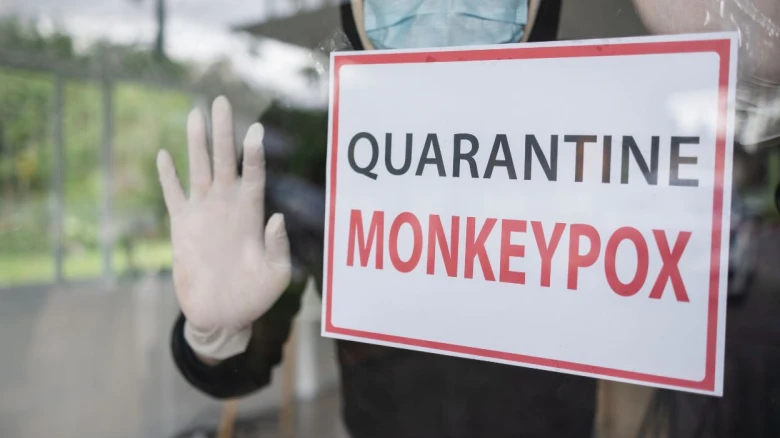Regional

Digital Desk: According
to WHO Director-General Tedros Adhanom Ghebreyesus, the quickly expanding
monkeypox outbreak is a global health emergency, the organization's highest
degree of alert.
The WHO
designation of a "public health emergency of international concern"
is intended to raise awareness that a coordinated global response is required
and may mobilise financing and international cooperation on the sharing of
vaccinations and treatments.
Two sources who
spoke to Reuters earlier on the condition of anonymity said that members of an
expert committee who met on Thursday to consider the potential proposal were
divided on the issue, but the director-general of the U.N. agency has the final
say.
Tedros
acknowledged that the committee had been unable to come to an agreement, with
nine voting against and six voting in favour of the declaration during a press
conference in Geneva when he announced his decision to proclaim the health
emergency.
Tedros has
historically agreed with expert committee decisions, but according to the
sources, he likely chose to support the highest alert level because of worries
about rising case rates and a lack of vaccines and treatments, despite the
absence of a consensus.
Following the
WHO, Lawrence Gostin, a professor at Georgetown Law in Washington, D.C., said
he admired the organization's political fortitude.
"It only
serves to enhance WHO's reputation. The correct outcome is obvious: to wait to
declare an emergency would be a historically significant squandered
opportunity."
More than 16,000
cases of monkeypox have been reported so far this year in more than 75
different countries, with five fatalities occurring in Africa.
In the most
current outbreak, outside of Africa where it is endemic, the viral disease,
which spreads through close contact and typically results in flu-like symptoms
and pus-filled skin lesions, has been primarily affecting men who have sex with
men.
Scientists and
public health professionals have been heavily on the WHO and national
governments to do more to combat monkeypox.
Since the
committee's initial meeting at the end of June, when there were only roughly
3,000 cases, the number of instances of the viral disease has skyrocketed.
The expert
committee had already agreed to reevaluate the emergency designation if the
outbreak got worse.
One of the main
concerns that prompted a reevaluation was whether infections, which are
virtually exclusively spreading among males who have sex with men, may spread
to other populations, notably youngsters or those who had previously been
vulnerable to the virus in endemic areas.
The country's
first two juvenile cases of monkeypox were discovered on Friday.
The committee has
stated that any modifications to the virus itself might also cause a
reconsideration.
The sources said
that the group is now split between those who believe that a declaration of an
emergency would speed up efforts to contain the disease and those who do not
believe that the aforementioned conditions have been met because the disease
has not yet spread to new populations or had a high fatality rate.
WHO's Tedros Adhanom Ghebreyesus revealed that the committee
failed to establish a consensus when he announced his decision to declare the
health emergency during a press conference in Geneva. Nine members were against
and six were in favour of the announcement.
quickly expanding monkeypox outbreak is a global health emergency, the
organization's highest degree of alert.
Leave A Comment